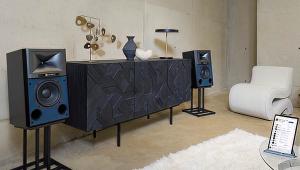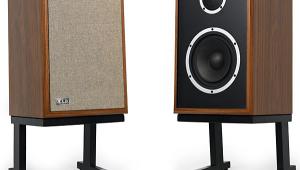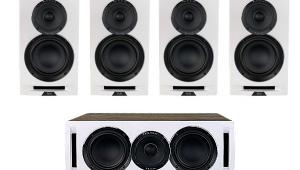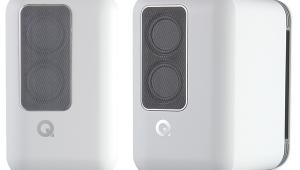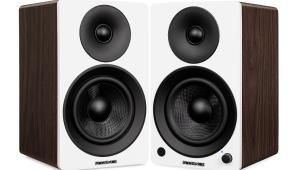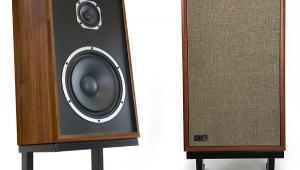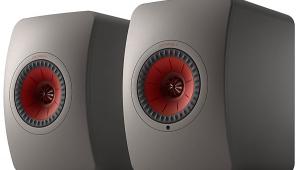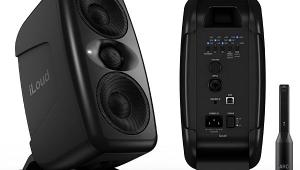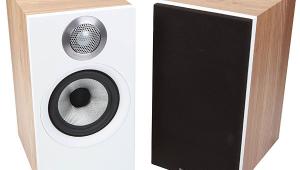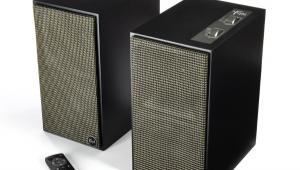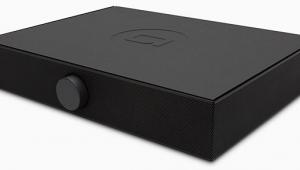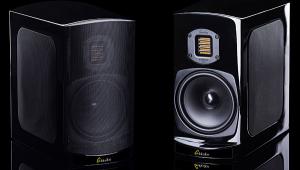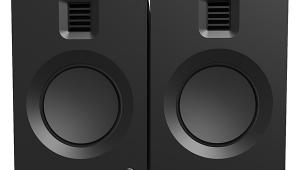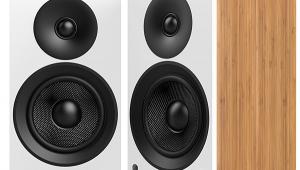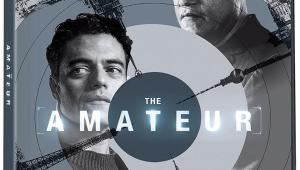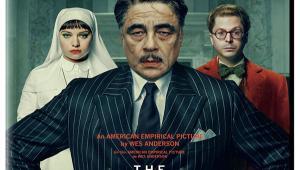Elac Uni-Fi UB5 Speaker System Review Page 2
The Hi-Res Treatment
Sometimes I look for a word that sums up a speaker system. In this case, I had to settle for two: high resolution. The UB5 monitor and UC5 center were champion imagers, helped by both the concentric mid/tweeter array and generally adept voicing. They were intriguingly revealing, more lively than relaxed, and candid about the quality of source component and content. I was careful about what I fed them (except when I wasn’t). The top end was refined and fully developed, not crude or overemphatic. Midrange was a rabbit hole—not ridiculously unpredictable, but full of unexpected texture, nuance, and surprising articulation. Bass from the monitors was lean and well controlled, while the sub was weighty but well controlled. Common denominator: controlled.

Spectre, with Daniel Craig as the most charismatic 007 since Sean Connery, showed off the speakers’ dynamic capabilities, starting with the Day of the Dead parade in Mexico City, complete with booming bass drum and the satisfying blam of an explosion. The S12EQ subwoofer had the appropriate scale and force—though this warm-up demo came before I’d dialed in the sub’s room correction, so my room’s bass bloat was apparent in the war drums that rampage through the movie. The soundtrack’s top end is almost too brassy for a set-and-forget approach to volume—you don’t want a wishy-washy feel in a Bond pic— but the speaker system’s refinement kept it in check. Dialogue clarity was impeccable.
The Finest Hours tells the real-life story of the Coast Guard rescue of an oil tanker’s crew during a catastrophic 1952 storm. The action ramps up early as massive waves rip the tanker in half while the Coast Guardsmen scale the crests of still more massive waves to reach the stranded sailors. This gave the speakers and sub as memorable a battering as any I can recall. They conjured up huge dynamic swells to match the maelstrom of lowfrequency and lower-midrange effects: the violence of stormy seas, the sorrow of groaning metal, and the thrum of engines, as well as countless ominous rumbles and shudders. I tried key scenes both before and after room correction. Auto EQ made the sub sound less obviously like a sub and more like an integral component of the drama, though the difference was subtle; the correction’s curve followed a more moderate course than the measured notches and peaks. I ran the Auto EQ setup again to be sure it was working. Shifting among the listening modes (normal, cinema, etc.) made a more discernible difference. Dialogue shouted into the Foley engineer’s howling wind didn’t collapse amid the effects—as much a tribute to the Denon receiver’s brawny amp section as to the speakers. Chris Pine, as the captain of the rescue boat, inhabited his New England character so thoroughly, I didn’t even think of Captain Kirk.
Bridge of Spies is another real-life story, this time with Tom Hanks as the attorney who negotiated the prisoner exchange that freed spy-plane pilot Francis Gary Powers. At every turn, the Elacs fulfilled the dramatic potential of an eventful soundtrack, starting with dense street noise down below the Brooklyn Bridge—the most forceful street noise I’ve ever heard coming out of speakers— and equally dense rainfall, which the concentric array delivered not merely as a wash of sound but as a bombardment of fat splatters. All of that, however, was just the appetizer to the main course: the apocalyptic roar, bam, pow, and rumble of the U-2 being shot down over enemy territory. The sub was admirably forceful, both before and after correction.
Robert, Felix, Jorma, and John
With best-case content, these speakers were eye-wideningly good. They were at their best with Ingrid Fliter’s dazzling recording of Schumann’s lone Piano Concerto and Mendelssohn’s Piano Concerto No. 1, featuring Antonio Méndez and the Scottish Chamber Orchestra, on a 5.1-channel hybrid SACD. There are advantages to a hi-fi company—in this case, Linn—serving as a patron of the recording arts. This superlative recording blends direct and reflected sound like a master chef. The UB5 was faithful to what Linn captured, imaging in a way that was more like photorealism than a cartoon, without exaggerating the outlines of objects or detaching them from the hall’s acoustics. Lately, I’ve spent a lot of time comparing my local concert halls, and this combination of hardware and software was strikingly like Carnegie Hall as heard from the balcony (which I prefer to the parquet). I had a sense of filters vanishing, and barriers falling, including the pain barrier: There was copious information but no discomfort at peak moments.
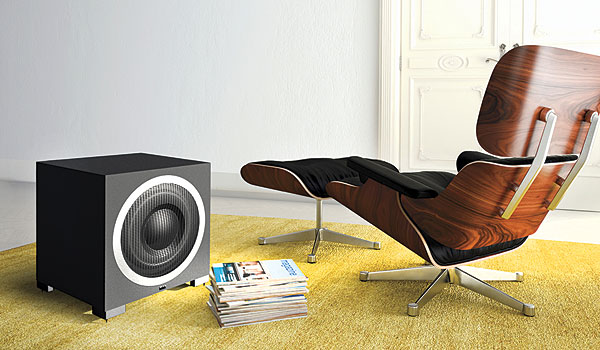
Blue Country Heart is the only Jorma Kaukonen solo album available on SACD, a 5.1-channel non-hybrid disc from Columbia. The album sounds great even on the standard CD release, but I like the way the surround mix expands the front soundstage into a horseshoe that sneaks toward the surround channels at the sides. The Elacs didn’t tamper with or exaggerate the flatly recorded natural string sound. But the combination of the aforementioned adept voicing and hi-res software did give the guitarist and his team of Nashville pros an extra measure of directness that didn’t compromise the production’s cozy warmth.
I played John Lennon’s Plastic Ono Band and Imagine on U.S. LPs from the early 1980s. No one would accuse these Phil Spector co-productions of being audiophile recordings. John was not an elitist; he wanted his music to sound good on car radios, boomboxes, and phonographs (including Elac phonographs of the period, I would assume). But I liked the way the concentric driver–based designs teased apart the strands of the doubletracked lead vocals on “Oh My Love” and celebrated the harmonic richness of the layered acoustic guitars on “Oh Yoko!” And again, there was a disarming directness about the music. I felt closer to John (and Ringo and George).
When Andrew Jones demonstrated the UB5 to the dealers and press at CES this past January, it was one of the stars of the show. Everyone in the room seemed to love this well-engineered and well-built speaker. It maintained its strength once I was alone with it. If you’re familiar with Jones’ mass-market speaker lines for Pioneer, the Uni-Fi series is an even more laser-focused version of the same approach, with an extra dollop of resolution—yet these speakers are also a superb value. They demand more power than AVRs in the same price class are likely to provide, so take what you saved on the speakers and splurge on the amp. You’ll end up with an amazing system.

